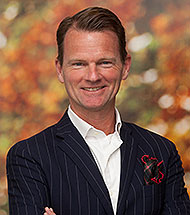20041126-Dos profesoras de la Universidad de Navarra publican un libro sobre 'Los quince primeros días de una vida humana
Two University professors publish a book on "The first fifteen days of a human life".
According to Natalia López Moratalla, the biological facts are clear: "You cannot confuse a human embryo with a handful of cells".
Natalia López Moratalla and María Iraburu Elizalde, professors at the University of Navarra, have published a book graduate "Los quince primeros días de una vida humana" (The first fifteen days of a human life). The book, published by EUNSA, "aims to make known the most recent research on the impressive process by which the life of a human being begins and by which the embryo develops as it makes its way to the mother's womb and nests in it," said Natalia López Moratalla.
As he explained, the central idea is to understand how a new individual is formed, taking as a starting point the cellular and genetic material provided by the parents. With the process of fertilization," he pointed out, "the paternal and maternal gametes activate each other and fuse the genetic material that each one carries. During the time that fertilization lasts, a new life is 'ignited': the inherited material acquires new marks and the structure proper to the beginning of a new existence".
The book also explains how the zygote (the embryo on its first day of life) grows and develops in molecular dialogue with the mother during the five days it takes to travel the path that separates the tube from the maternal uterus: "A journey, the first of its life, in which it learns to orient itself and prepares itself so that the mother can receive it as someone different from herself, without this being a danger. And after receiving him financial aid to nest, to implant himself in her uterus, during that second week of life".
For readers interested in human lifeFor Natalia López Moratalla, "the biological facts are clear and precise. Scientific rigor eliminates ideologized, interested or partisan interpretations. One can be of the opinion that an incipient human life has only a ponderable value with respect to other possible goods and will have to find reasons that justify this hierarchy of values and rights. But one cannot, for example, confuse an embryo with a handful of cells".
The publication is aimed at scientists, legislators and experts in ethics, but it also "allows an informative reading that makes it a book of enquiry for readers interested in human life and the current development of biomedical technology".
For his part, the author of the prologue, University of Navarra professor Esteban Santiago, stated that "a more rigorous understanding of the miracle of human life that begins with fertilization will help research manager in this field of science where so many things are at stake".

